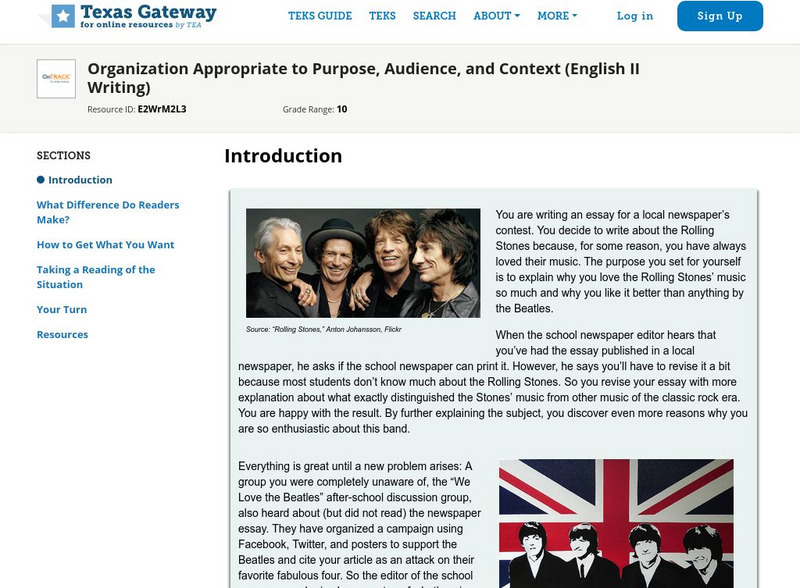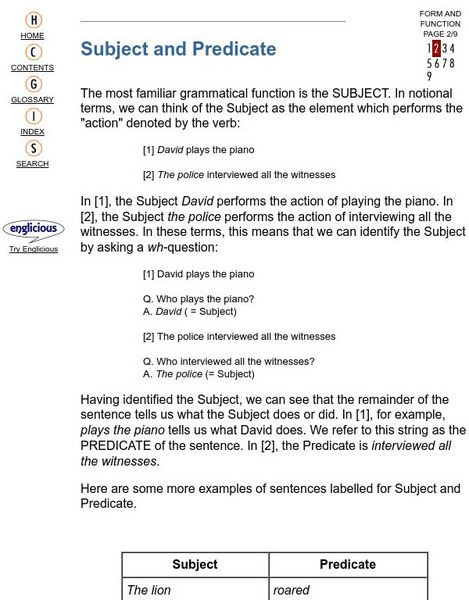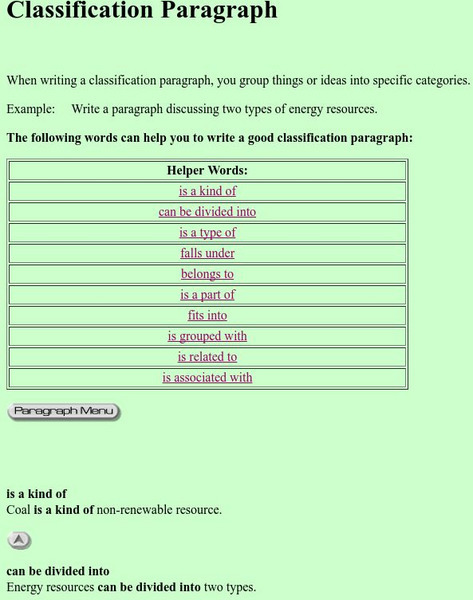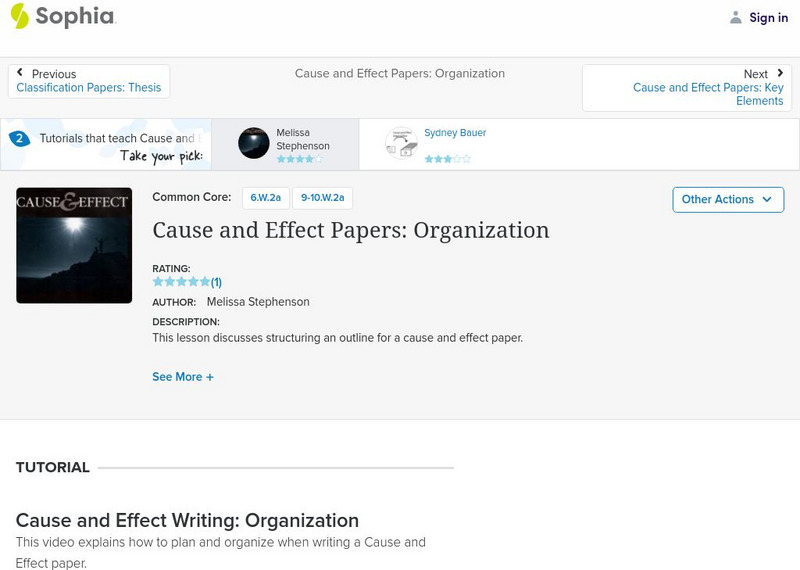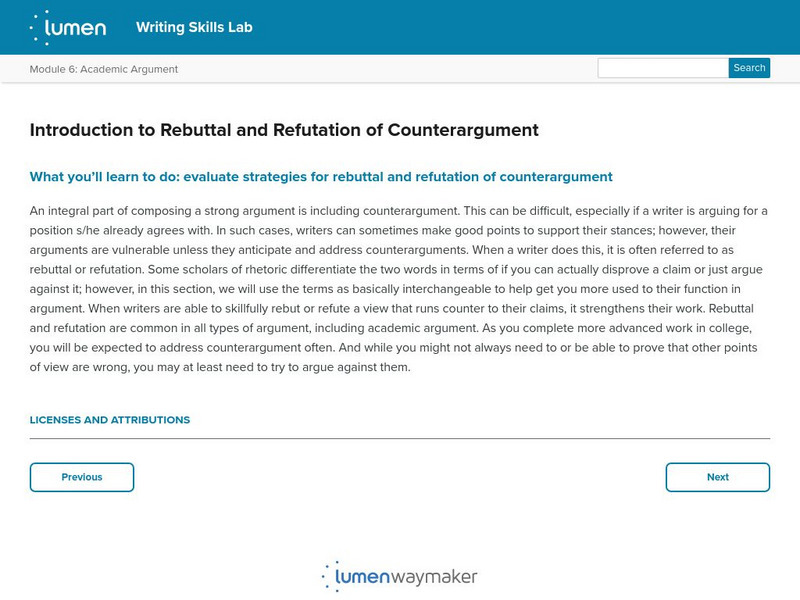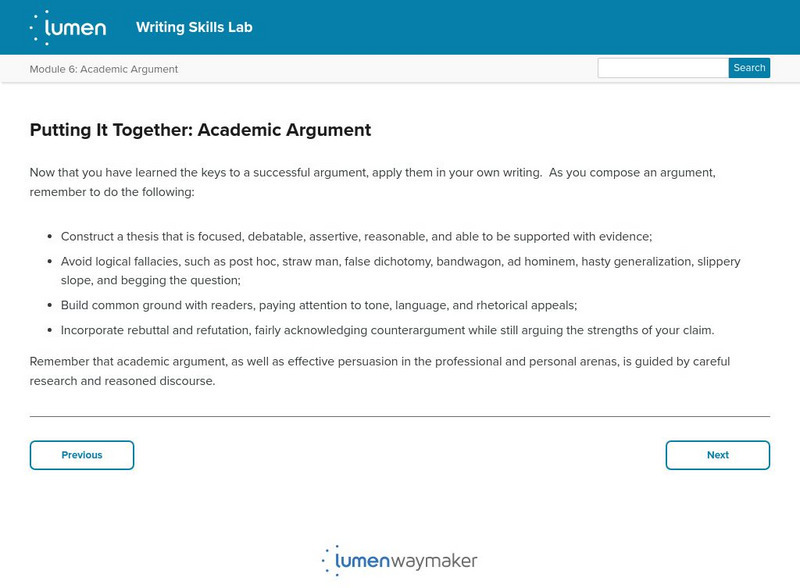Lumen Learning
Lumen: Boundless Communications: Logical Appeals
This activity focuses on using logical appeals in persuasive speeches including inductive and deductive reasoning, inductive reasoning and associative reasoning, forming a rational appeal, and errors in reasoning-formal and informal.
Lumen Learning
Lumen: Writing Process: Organizing
This activity focuses on the organization of your paper including how to write a thesis statement, the elements of an effective paragraph, patterns of organization, transitions, and conclusions. It also provides a video of the Toulmin...
Lumen Learning
Lumen: Rhetorical Appeals: Appeals to Logos
This lesson focuses on appeals to logos, or appealing to your audience's logical side including your types of source material, remembering your audience, and being sure to maintain clear lines of reasoning throughout.
Lumen Learning
Lumen: Rhetorical Appeals: Establishing Ethos
This lesson focuses on establishing ethos or credibility. You can establish ethos-or credibility-in two basic ways: you can use or build your own credibility on a topic, or you can use credible sources, which, in turn, builds your...
Lumen Learning
Lumen: Analysis: Evidence
This lesson plan focuses on evidence in the analysis including being selective with evidence, being clear and explicit, and moving past obvious interpretations.
Lumen Learning
Lumen: Writing Skills: Formula for Refutation and Rebuttal
This lesson focuses on the formula for refuting and rebutting counterarguments including accurately representing opposing viewpoints, using a respectful, non-incendiary tone, using reliable information, using qualifying words to aid...
Lumen Learning
Lumen: Writing Skills: Further Your Understanding: Refutation and Rebuttal
This lesson focuses on examples of rebuttal and refutation to improve your understanding.
University of Sydney (Australia)
The Write Site: Structuring Your Individual Arguments
A diagram is provided to help students organize an argument. Assertions, sub-assertions, evidence, and counterarguments are included. Click on page 2 at the bottom to see the functions of the above and page 3 to for a practice activity....
Other
Wheeling Jesuit University: How to Write a Cause Effect Essay [Pdf]
This writing lab explains the terms "cause" and "effect" and how to write cause-effect essays.
Texas Education Agency
Texas Gateway: Organization Appropriate to Purpose, Audience, and Context
[Accessible by TX Educators. Free Registration/Login Required] In this lesson, you will learn how to adjust the organization of your essay to make it appropriate for different purposes, different audiences, and different contexts.
Lumen Learning
Lumen: Critical Reading: Supporting Claims
This instructional activity focuses on supporting claims including the distinction between main ideas and supporting details, relationship between purpose and supporting details, sufficient and related support, and support and...
Harvard University
Harvard University: Beginning the Academic Essay
This resource explains how to write an essay. Provides information regarding length, order, and opening strategies. W.9-10.1a claims/intro/org
Leaf Group
E How: How to Write a Briefing Paper
This article by Jody Hanson explains how to write a briefing paper, a concise communication to keep people up to date on the status of a project and any changes.
University College London
University College London: Subject and Predicate
The Survey of English Usage provides explanations and examples for the subject and the predicate.
ACT360 Media
Writing Den: Classification Paragraphs
These tips and phrases can help you create a classification paragraph.
ClassFlow
Class Flow: Graphic Organizer Map Cause and Effect
[Free Registration/Login Required] This graphic organizer flipchart uses the fishbone technique to map cause and effect. It is useful for helping students understand and analyze reading passages, historical events, and scientific...
Leaf Group
E How: Discover: How to Write a Statistical Paper
An explanation of how to write a paper that reports statistical information and analysis.
Sophia Learning
Sophia: Cause and Effect Papers: Organization
This lesson discusses structuring an outline for a cause and effect paper.
Lumen Learning
Lumen: Writing Skills:introduction to Rebuttal and Refutation of Counterargument
This is an introduction to rebutting and refuting counterarguments. Click the next button on the bottom right for more information about the counterargument.
Lumen Learning
Lumen: Writing Skills: Putting It Together: Academic Argument
This is a summary of the academic argument learning objectives including constructing a debatable thesis statement, avoiding logical fallacies, building common ground with readers, and incorporating rebuttal and refutation.



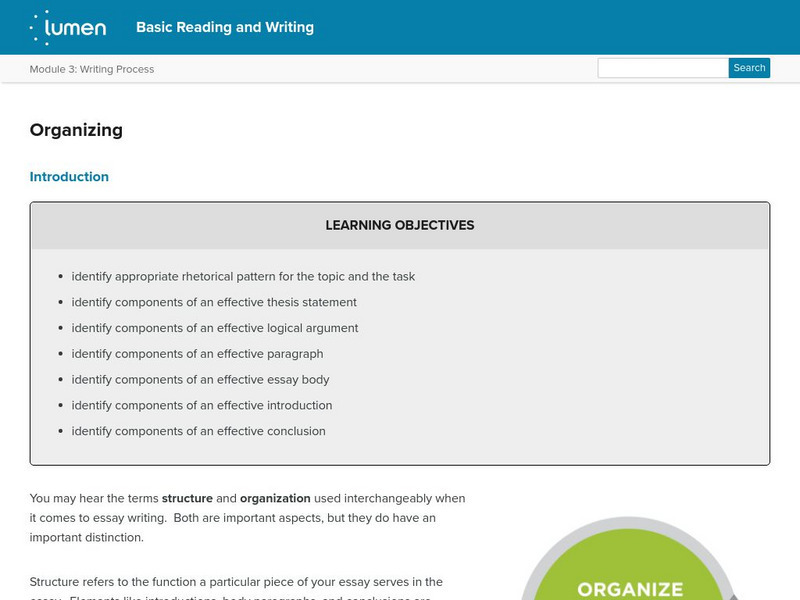
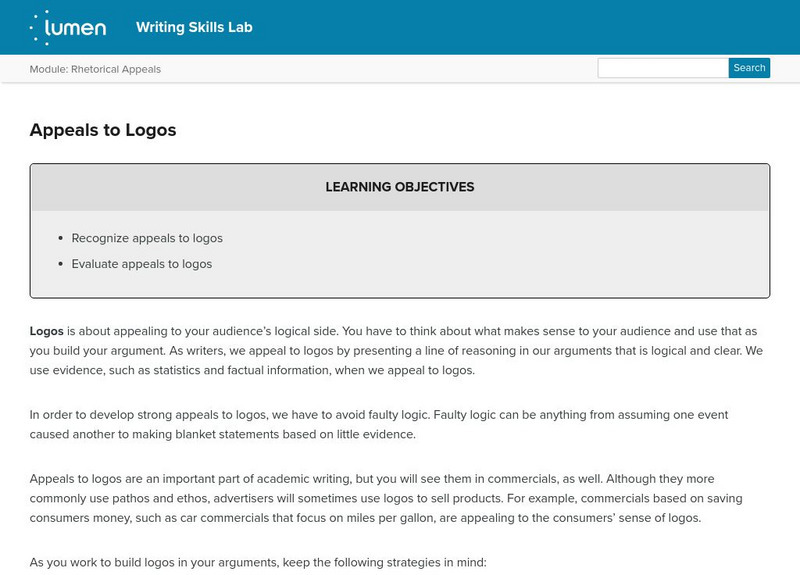



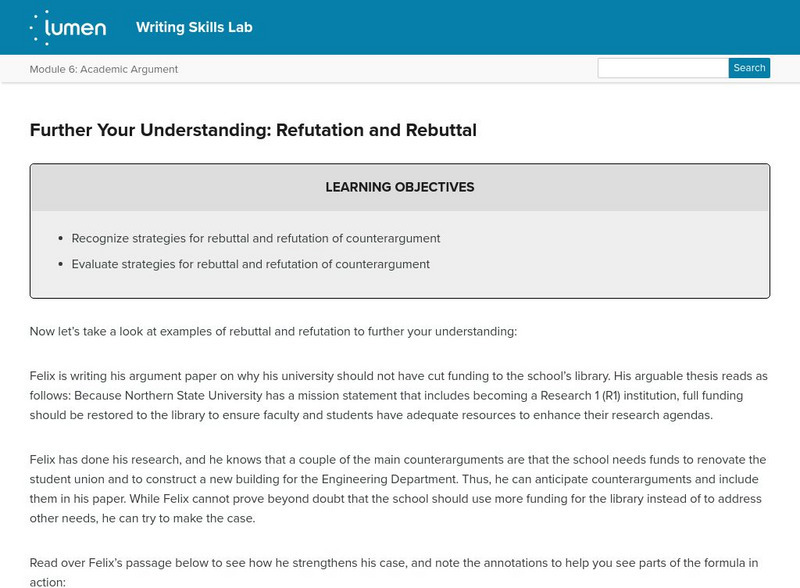

![Wheeling Jesuit University: How to Write a Cause Effect Essay [Pdf] Handout Wheeling Jesuit University: How to Write a Cause Effect Essay [Pdf] Handout](http://content.lessonplanet.com/resources/thumbnails/411265/large/bwluav9tywdpy2symdiwmduymc0xmdmwnc0xztdwmnvvlmpwzw.jpg?1589993216)
